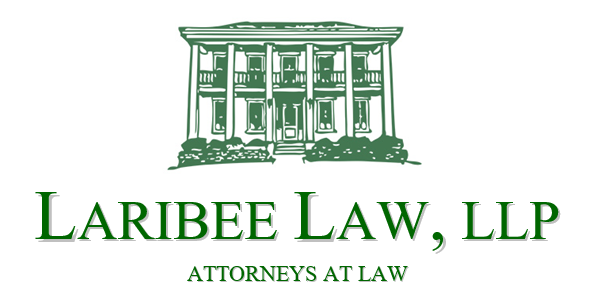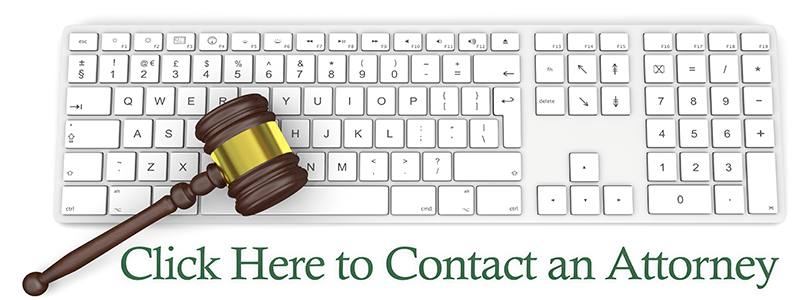Choosing the Right Executor
Michael L. Laribee, Esq.

What is an executor?
An executor, or executrix if female, is a person nominated to carry out the directions in a last will and testament. Their primary duty is to distribute estate property after death in a legal and orderly fashion. Clients often struggle deciding who they should name to fill this important position.
When nominating an executor, most importantly, an executor should be organized and trustworthy. He must abide by strict deadlines, communicate effectively with beneficiaries, and work well with attorneys and other professionals whose services are necessary to complete the estate. The estate process can be very time consuming and intricate - Many estates take longer than one year to complete.
In most cases, married people will nominate their spouse as their primary choice for executor or executrix.
It is advisable to name an alternative executor in the event the primary choice is not available or is otherwise unable to serve. Choosing among children or other family members is often difficult. It may lead to feelings of disappointment or hurt. Death often intensifies strained relationships and may magnify conflicts.
- A good executor must maintain a positive relationship with the beneficiaries and is able to act fairly.
Lawsuits and disputes are becoming more common in estate administration. It is advisable to choose a decisive person who can withstand second-guessing by other beneficiaries and focus on the wishes of the decedent. When emotions run high, people lose sight of the goal of settling an estate efficiently and economically. It is far too easy to become mired in disputes over items which have only sentimental value. A strong executor may avoid spending thousands of dollars in litigation over valueless property.
If conflict between beneficiaries is expected, then naming a neutral third-party as the executor may be best. It is important to remember, however, that executors are allowed to take a fee based upon the amount of property in the estate. Depending on the value of the property, this fee can reach many thousands of dollars and is paid prior to distributing the balance of estate assets to the beneficiaries. The executor fee can be waived, however. It is more likely that a family member will decide to waive this fee. This allows more money to be disbursed to the beneficiaries.
It is not advisable to choose joint or multiple executors as this complicates the estate administration. Simple tasks like banking and listing property for sale become more cumbersome. Joint executors must sign all court documents and agree on all decisions, large and small.
Disagreements between executors could cause long delays in your estate administration.
The probate court has exclusive jurisdiction to direct and control the conduct of an executor, so having one executor is sufficient.
The proposed executor should live in the same state as the decedent. Otherwise, a court may require the executor to post a bond in an amount not less than twice the value of the personal property of the estate. They are also required to maintain a separate estate bank account located within the State of Ohio. It is best practice to choose an executor who lives in or near the county where the estate is administered. Use the following link to see a map of all counties in the State of Ohio.
Keep in mind that selecting an executor that lives close, helps to make it much easier for the executor to meet with the estate attorney, sign documents, maintain real property, preserve personal property, conduct banking, and attend required court hearings.
Executors should be informed that they have been named in a will, their nomination should not be a surprise. The executor should understand the wishes of the person making the will long before their death.
Other ways to assist an executor during estate planning:
- Keep complete, quality, organized records;
- Tell the executor where to find important documents including the will, deeds to real property, car titles, insurance policies, and tax returns;
- List all bank accounts, safe deposit boxes, stocks, brokerage accounts, retirement accounts, including corresponding account numbers and financial institutions;
- List passwords and safe combinations;
- List the contact information for the professionals who are to be consulted upon death including attorneys, accountants, investment advisors, and insurance agents; and,
- Make written funeral service and burial arrangements.
Doing these things will streamline the process. Before choosing an executor, it is imperative to seek the assistance of an experienced probate attorney to review individual facts and circumstances.
This article is intended to provide general information about the law. It is not intended to give legal advice. Readers are urged to seek advice from an attorney regarding their specific issues and rights. Contact an attorney in Ohio at Laribee Law, LLP to request legal help with estate planning.
Have legal questions? The experienced attorneys in Medina, Ohio at Laribee Law, LLP are ready to assist you.
Need legal advice? Request a call back from a Lawyer


